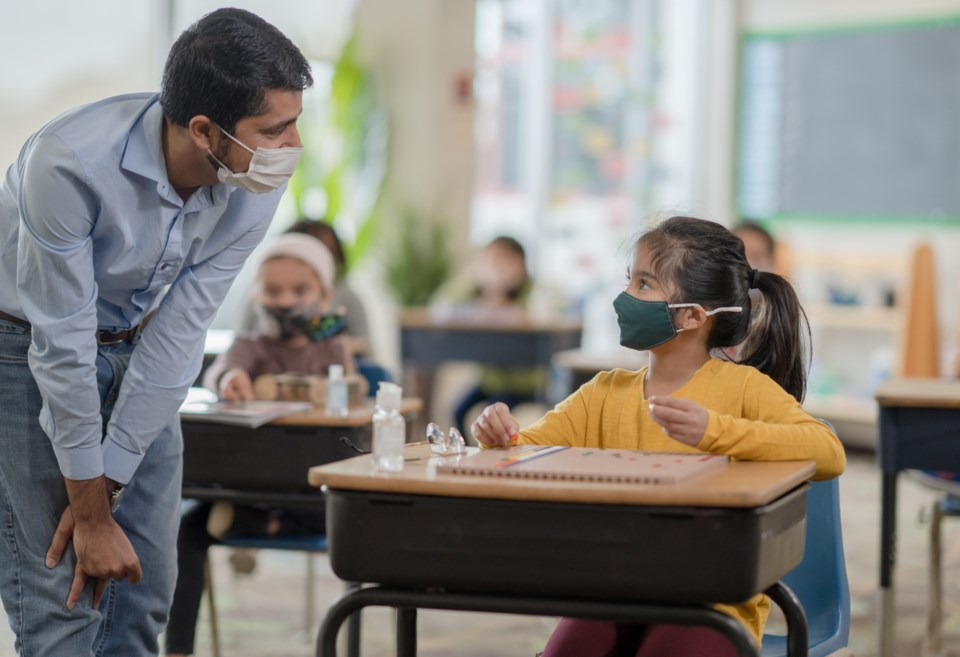SASKATOON - In a world of immense unpredictability, teachers have innovated, pivoted and done all they can to ensure Saskatchewan’s students receive the best education possible.
COVID-19 has demonstrated the value of schools in a completely new way. Education is one of society’s most important investments because everything from engaged citizens to a strong economy is built on a solid educational foundation.
As we move forward, a critical decision now faces us: how can Saskatchewan build and maintain a world-class public education system that sets every Saskatchewan student up to reach their potential?
Saskatchewan possesses an exceptionally high-quality public education system because our teachers are some of the most educated, well-trained and dedicated professionals you will find. Today’s teachers have access to far more information about how students learn and are more responsive to the broad range of learning styles and needs they arrive with at school each day. Because of that knowledge, teachers in Saskatchewan are far more aware of and impacted by classroom complexity.
Educators use the term class complexity to describe the array of needs present in a given classroom. These often include learning, behavioural, cultural, language and accommodation needs. The spectrum of student needs ranges from those requiring intensive support to gifted students, all of which requires the teacher to construct an experience that is challenging, rewarding and enriching while also meeting provincial standards for curricular outcomes. In 2021, 78 percent of Saskatchewan teachers reported that the complexity of their classroom has increased over the previous two years.
All of this is compounded exponentially as many classes throughout the province get larger and larger. In 2021, a Saskatchewan teacher stated: “Class size and composition are more demanding. How do you meet individual needs when you have 30 students with varying abilities, behaviours and emotional needs?” Class complexity was a growing issue before the pandemic and has been pushed to the forefront by the pandemic.
Neither schools nor teachers are meant to be simple “conveyors of information.” Each of us spends a huge number of our waking hours from early childhood to early adulthood at school, meaning that PreK-12 education plays a substantial role in shaping our future. Given this responsibility, all schools need specialized professionals such as those who teach English as an additional language, speech-language pathologists, counsellors, social workers, education psychologists and therapists who ensure that each student’s right to a quality public education can be properly fulfilled.
Unfortunately, in Saskatchewan, few school divisions have the necessary funding to ensure these types of professionals are readily or consistently available. The cause of this is simple: over the last decade, PreK-12 education funding has rarely kept up with new enrolments, inflation or student need – and this underfunding compounds over time. In 2021, only 14 percent of Saskatchewan teachers reported that specialized professionals were available when needed – four of every five Saskatchewan students had no access to specialized professionals. As a result, many students find themselves having to wait months to access the professional support they need.
When teachers say that under-resourced schools and overstretched classrooms are having an effect on student learning, it is wise to take their evaluation seriously.
Teachers have the professional knowledge, skill and ability to meet the needs of Saskatchewan students. Saskatchewan’s public education system must supply the human and financial resources so that teachers have the tools to do their jobs.
The Government of Saskatchewan must commit the necessary resources to deal with classroom complexity. Schools must serve as community hubs where students can access health, justice and social services in a timely manner. All schools should have access to the support of community members such as School Community Councils and cultural advisors to work with teachers in ensuring that schools are safe places where all students feel welcomed and seen.
In places where classes are too large, make classes smaller. We should all expect that each student can get the attention they need and deserve from their teacher.
Future provincial budgets will need to reflect this commitment to students. Whether or not we personally have students or teachers in our own lives, as a society we must understand that education is an investment in Saskatchewan’s future. In reporting 2009 data from the Organisation for Economic Co-operation and Development, the Conference Board of Canada reported significant returns to individuals based on their educational attainment.
Those who did not graduate from high school earned $80 for every $100 earned by high school graduates. Those with a university degree earned $165 for every $100 earned by high school graduates. Research shows unequivocally that each additional dollar invested in education has a positive impact on gross domestic product and saves future government expenditure on social assistance, health care and criminal justice – it simply makes sense.
It is time for our provincial government to view education as an investment rather than a cost to be managed. There is an opportunity for our public education system to emerge from this crisis more capable than ever of preparing Saskatchewan students for what lies ahead. The Government of Saskatchewan must increase its investment into Saskatchewan’s public schools to ensure schools are community hubs where every student has access to the educational, cultural and specialized supports they need. Teachers can do the job – now is the time to ensure they have the necessary tools.




